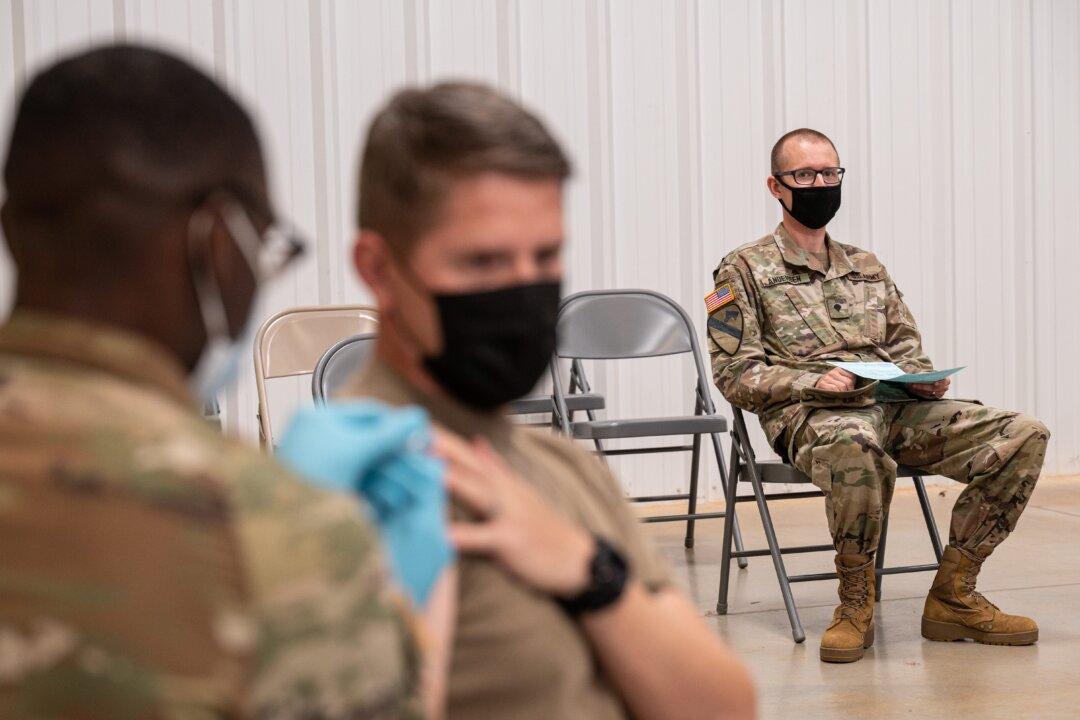The U.S. Department of Defense has changed the number of post-vaccination heart inflammation cases it identified, the latest in a series of moves it has made to minimize side effects from the COVID-19 vaccines.
Ashish Vazirani, the acting under secretary of defense for personnel and readiness, said in a newly disclosed document that just 80 to 90 cases of myocarditis and/or pericarditis were identified following COVID-19 vaccination in members.





